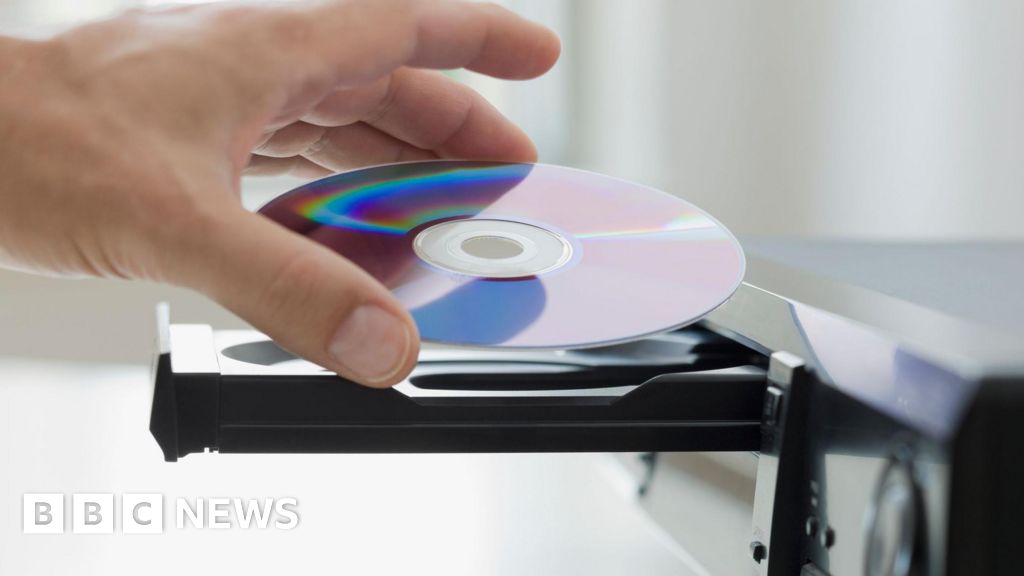More shoppers are buying Blu-Ray and DVDs of movies and TV shows despite the rise in streaming platforms, the boss of HMV has claimed.
Phil Halliday, managing director of HMV, said the retailer was in “good health” with all of its main product areas back in growth.
His comments come after the revival of the High Street stalwart, which was saved from administration in 2019.
Mr Halliday said that “physical visual” sales had increased, adding that “4K and Blu-Ray have been doing particularly well”, but figures suggest sales across the industry are still declining.
“When streaming first came out I think a lot of people saw it as cheap and with huge breadth of choice, but I’m not sure people see it like that now,” he said.
“People are willing to pay for a physical copy of shows or films they know they will rewatch.”
The HMV boss compared the uptick in DVD sales to people buying and collecting CDs and vinyl records. A spokesman told the BBC its “visual category” was up 5% in the first half of 2024, “with growth driven in particular by high-definition formats”.
Figures suggest DVD and Blu-Ray sales are still falling generally.
Era, the digital entertainment and retail association, said DVD and Blu-Ray dropped by 4.7% in the first half of 2024.
The industry body added “physical retail” of video sales were £169.7m last year- down some 18.8% on 2022..
The rise of streaming platforms, such as Netflix and Amazon Prime have enabled households to access movies and TV shows without the need of having physical disks.
This has led to a steady decline of DVD and Blu-Ray sales in the past decade and some retailers, such as supermarket Sainsbury’s, no longer sell CDs and DVDS due to dwindling returns.
DVDs sales peaked in the early 2000s, with Finding Nemo becoming the biggest-selling DVD of all time after its release in 2003, shifting 38.8m copies.
But there are still some people committed to buying physical movies and TV shows so they actually own a copy, and can access it when streaming services change content libraries or remove titles.
The 4K Ultra HD version of Oppenheimer sold out the first week it went on sale in November last year, across all retailers, including Amazon, prompting Universal to say it was working to replenish stocks.
“There is a danger these days that if things only exist in the streaming version, they do get taken down. They come and go – as do broadcast versions of films….But the home video version is the thing that can always be there, so people can always access it,” Christopher Nolan, director of Oppenheimer, told the Washington Post last year.
Alice Enders, head of research at Enders Analysis, told the BBC while streaming has become popular, “the physical format never went away, as vinyl truly shows”.
“In Japan, the CD+DVD is still far ahead of digital because merchandise is a key part of the j-pop live experience and establishing a history at home is the ultimate homage,” she said.
“HMV is not the only supplier benefitting from this resurgence of the hard copy, also seen in books.”
HMV was bought in a rescue deal by Canadian music retail executive Doug Putman, owner of Sunrise Records, in 2019 after falling towards administration for the second time in less than a decade.
Last year, the retailer reopened its flagship store in Oxford Street, London, following a four-year hiatus. The brand, named “His Master’s Voice”, was launched by English composer Edward Elgar in 1921, selling gramophones, radios and popular music hall recordings.
Mr Halliday said the Oxford Street store has been performing well since it reopened.
“It’s been a step up for the business,” he said. “The store is a big site and it’s been really fun to work on it and bring it back to life properly.
“But it’s important to say that we aren’t just shops like Oxford Street. To be honest, our bread and butter is that we have so many brilliant stores in communities all across the UK.
“At the moment, I think we have really good coverage in terms of locations in the UK, and we’re pleased with how they’re trading right now.”

